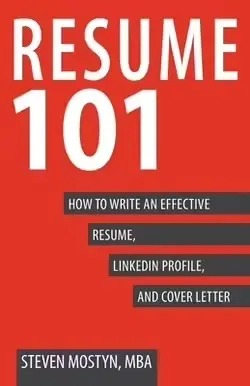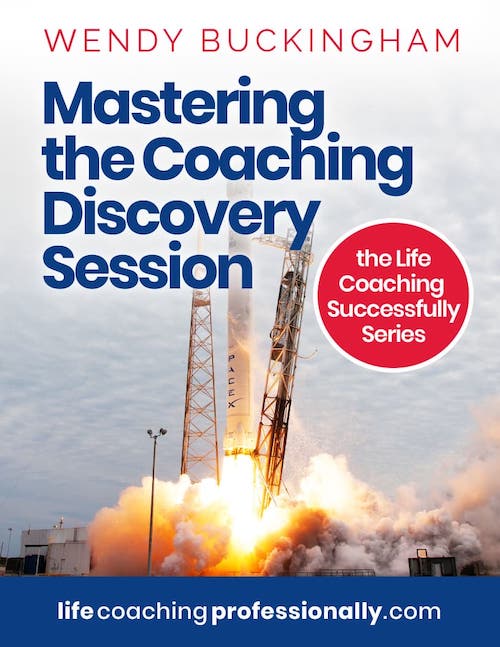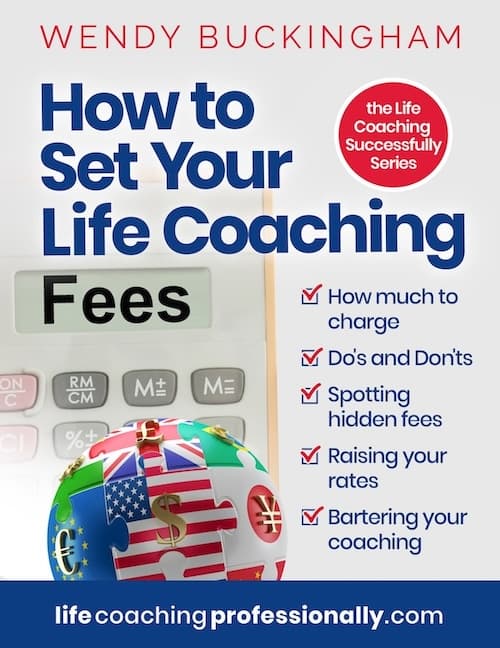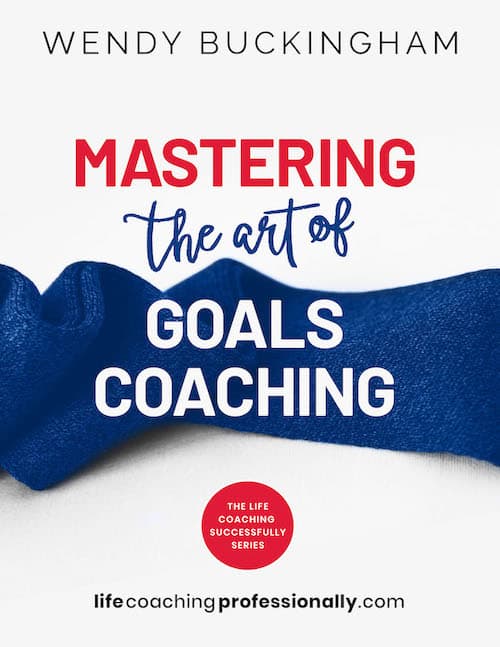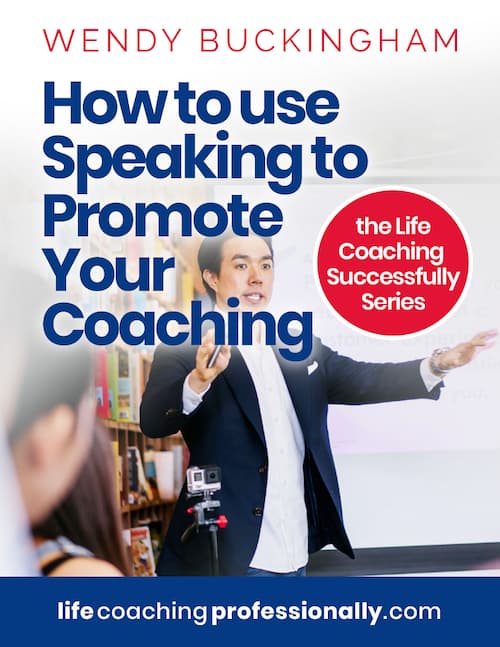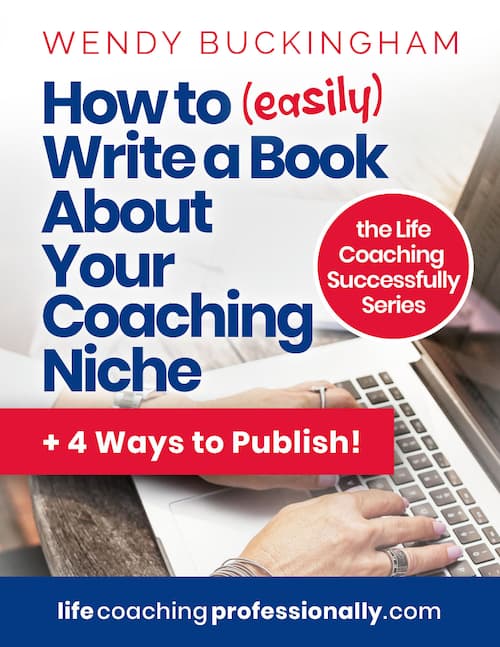- Life Coaching
- Life Coaching Jobs
Strategies To Secure Life Coaching Jobs
Are you interested in being employed as life coach, using your skills to coach executives, leaders and employees either as a contractor or in-house coach?
Read on to learn what it takes to get contracted or employed and how to find sources for life coach jobs. You'll also get some tips that will give you the edge for a successful application.
Quick Links
I may receive commissions at no cost to you. I participate in the Amazon Services LLC Associates Program. More...
How To Start Finding Coaching Employment
1. Research the business you hope to work for
Obviously the prospective employer will want to know about you. But it's also important before you apply, to find out something about them and the culture of the company.
This is so that in both your CV and any interview, you can show you have taken the trouble to make yourself familiar with things like their history, culture and vision. More on CVs further down the page.
2. Do you have the right experience and qualifications?
You need to be realistic about whether your qualifications and/or experience are enough to qualify for the life coaching job you are applying for.
If you are applying for a corporate coaching role with a large company, the HR department may need a measure of your professional credibility to justify employing you.

Therefore, you will inevitably be asked about your coach training and the credentials or certifications you hold.
For example, if you have only just completed a basic online coach training with no recognised certification and you have little corporate or business experience, you will probably have little chance of winning a position in a large company.
Conversely if you can show you have experience in a management position and understand the particular issues and culture of your potential employer, your chances of being employed are pretty good.
Don't let what I write put you off applying to companies that are hiring coaches.
If nothing else, it will be excellent practice and you will learn what is needed and wanted in the market place. Plus, you never know what may happen!😊
3. Target your life coaching training for the job you want
If a life coaching job in a corporate environment is your ideal workplace opportunity, it is quite possible that you will need to consider investing in a more business targeted coach training. This is especially true if you have no corporate or medium-large business experience although successful self-employment could well be a plus.
Employers in corporate settings often prefer coaches with credentials from recognised organisations like the ICF (International Coaching Federation) or the IAPCM (International Authority for Professional Coaches & Mentors).
4. Some coaching niches where you may find employment
You may already have an idea about the type of business and industry you prefer to work with as a coach. If not, there are numerous possibilities depending on your training, skills and experience.
Here are four of the broad workplace coaching niches for you to consider.
Within each, you'll discover there are several specialist niche options that can be used with the foundation of life coaching skills.
I've included just a few of the possibilities and what they may involve.
- Career planning with recruitment agencies (executive, redundancy, new graduates)
- Team Building within organisations (sport, legal, multi-level-marketing productivity)
- Personal coaching issues for executives (communications, staff relationships,)
- Leadership coaching for managers and executives (delegation, team building, decision making).
Useful Sources To Help You Find Your Coaching Job
1. Search Engines
Some of the big (and not so big) search engines, such as Google and Bing, will provide a wide range of job opportunity sites to explore. Monster.com, Seek.com.au and Indeed.com are just a few of the big name search sites that you can check out for work for in person or online coaching.
There are also other recruiters such as Manpower, McKenzies, and Robert Half that are international and may list coaching opportunities.
However, if you do a web search simply for life coaching jobs, or executive coaching jobs you may find the search engines turn up few specific opportunities. You may have to be a bit more resourceful and specific in your search to find employment sources.
In my research I have specifically found this to be also true of ChatGPT. Like any search function, the quality of your answer will depend on the quality of your question!
2. Life Coaching Associations
Even if you haven't yet been credentialed by an independent coaching association, it could be useful to take out membership with that association.

Showing this in your CV demonstrates to the people offering internal coaching jobs that you are a serious coaching professional.
See my page about The Benefits of Joining an Independent Coaching Association. It includes a list of some of the associations you can join, such as the ICF (International Coaching Federation), with a brief description of what they offer their members.
Some associations also include a referral service which can lead companies looking for a coach to see your profile.
3. Networking both in person and online
Face to face networking is a great way to raise your profile and increase your chance of finding the right life coaching job for you. As well as joining business networking groups, explore social media platforms, such as LinkedIn and Facebook. You can also join coach related groups or industry groups in your niche or field of expertise.
The more you spend time in your target environment the more chance you will have of being known and knowing about what is available before it becomes public.
For example, look for social media and online groups where you can show your profile and post questions or comments. All these networking paths can help you establish credibility and build the relationships that can lead to the best jobs.
4. Reach out to big name companies
A creative idea is to research the big name companies or government organisations in your region who have a stated culture and commitment of support and growth for their employees. Make enquiries as to whether they employ coaches.
You could even put in a proposal to a company you think might benefit from having its people coached.
5. Coaching Directories
You can list your life coaching profile and hopefully attract some clients in the many coaching directories. Some directories are very useful. These include those that are included as a benefit to members of well established coaching associations such as the ICF. Others not so much!
Some are free, some charge you to be listed. If they are not a large, recognised association, you need to research carefully. With some, getting a list of coaches on the site is simply a way to attract advertising. Unfortunately you are simply their product to sell to advertisers. 😏
Carefully check out any referral directory that is charging a fee. See if you can find out if they are right for your country or state. Also check if they offer a "job alert" function.
I did this for one directory by contacting any members I could find who were in Australia and asking them about their experience and whether it was worthwhile. The feedback was was not good and I would have wasted my money.
Finally, look up the directory on Google or another search engine. (Search for Directories for Life Coaches) and see if they have a sponsored listing that is easily found. You'll also find a lot of rubbish comes up!!!
6. Freelance platforms such as Upwork and Fiverr
Platforms like Upwork or Fiverr can be useful for listing your profile as they may be searched by organisations and companies looking for a coach for a one off coaching project - which of course may lead to more work and a good testimonial.
Make Your Coaching Resume Stand Out
Whether your resume is in print or online, be sure to emphasise not only your work history but the different work or ethnic cultures you have experienced and what you have done and achieved..
If appropriate, briefly include your activities outside a business environment, such as hobbies. Aim to make your profile personable and engaging, yet still professional. Emphasise how you are able to adapt your coaching style to a particular individuals or industries needs.
Any don't forget to consider including good headshot - not one that is 20 years old😀.
These days employers will often search sites like LinkedIn for suitable people to invite to apply for a position.
So that's why it's important to set up a profile on these platforms that showcases your background, qualifications and skills as well as a few relevant personal reference. And again be sure to set up the coaching job alert function.
An excellent book to check out to help you make your resumes and profile really effective and engaging is Steven Mostyn's Resume 101. You can find it on Amazon.
Your background can be as important as your coaching credentials.
As well as your coaching details and qualifications, emphasise your background and employment, before you became a coach.
For instance, if you have a background as a nurse, then you will have a head start over other coaches applying for work with a company in the health industries. It's the same if you have managerial experience in the corporate world and apply for a job to coach managers.
As an example, a fellow well qualified coach secured a contract with a large Telco over lots of competition because she made much of her 30 years experience as a Telco employee before she became a coach.
Don't let your social media activities sabotage your coaching job opportunities
You can prepare all you like, and have a whiz-bang resume, but if your social media profile and activities don't match or let you down, you could lose out.
Check how you come across to a prospective employer on social media? Is your personal page full of posts you would be happy to be read by a future employer?
Employers are increasingly looking at the social media activity of job applicants to see if what they say about themselves in the CV and how they conduct themselves on social media are a match. I have heard sad stories about people about to get the job until the employer had a look at what was on their Facebook page.
So - clean up your Facebook and X (Twitter) accounts. Delete posts and comments that might not show you in a good light. If it is appropriate, share things about the work you love doing or your hobbies. Employers are not going to be keen if the 'you' that you present to your friends, is unacceptable to their workplace culture.
Finally, do keep your personal and business related social media profiles on Facebook and LinkedIn, current and relevant. Regularly update with quality information about your goals, achievements and the kind of work you do.
Online Life Coaching Jobs
These days online coaching or, as it is sometimes called, remote coaching, is becoming as common as face to face coaching. And, with the increased use of platforms such as Zoom or Skype, the ability is there with video to be almost as physically present with the client as if you were in the same room.
Many employees of coaches will be quite happy for you to not be physically available to clients, so long as you can present yourself and your credentials as a coach in a way that shows you know your stuff. Also, being willing to coach remotely can also really broaden your scope by getting clients anywhere in the world.
Getting Jobs Using Agencies That Hire Out Coaches
If you have a challenge marketing yourself, then getting on the books of a company that employs or contracts coaches and/or provides coaching services to businesses can be a good solution. This is the case no matter what your coaching speciality is.
The clients of companies that hire life coaches are often businesses who want to get some coaching for their employees but do not have an internal resource to do this.
There are three ways they can work:
- They employ and pay you and hire you out
- They promote you and collect a fee from the client
- They promote you as a coach, either free or for a fee but you collect the fee from the client.
Find out more about how this works and the advantages of getting life coach and executive coach employment from coaching agencies on my page about providers that provide coaches for business.
Alternatively, some well established life and business coaches leverage their coaching services by including other coaches on their website as part of their team. You join their team and they do the marketing. I've done this a couple of times and it was a great source of clients. However, some may insist you follow their marketed format for coaching and that may not work for you.
In summary, there are loads of opportunities to get in-house and contracted coaching jobs. You just have to get clear on what is suitable for you and how you are going to go about applying.
More Useful Coaching Resources
Download my eBooks for extra coaching value and resources
I have written a range of informative books (all from my own 25+ years' experience) that will help you to authentically attract new quality clients, increase your coaching skills and promote your coaching services.
Only available as a 60 page color PDF.
100% Satisfaction or Your Money Back
I am sure you will get real value from each of these books. However, if within 30 days of purchase you are not 100% completely satisfied, you will receive a full 100% refund.

